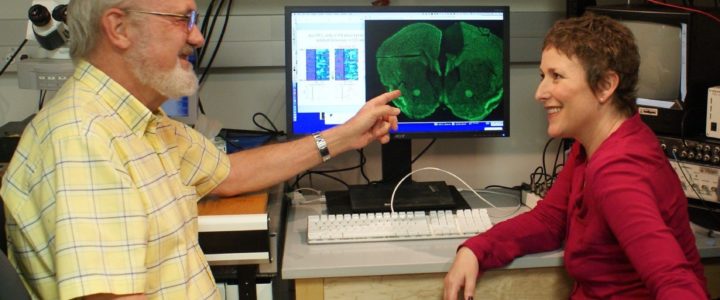With a $90,000 grant from FRAXA Research Foundation from 2016-2017, Dr. Daniel Johnston and Dr. Jenni Siegel at the University of Texas at Austin are analyzing pre-frontal cortex (PFC) dysfunction in the Fragile X model. They have preliminary evidence that Fragile X mice are severely impaired in a prefrontal cortex (PFC)-dependent task.
Read moreTreatment Targets
Altered Neural Excitability and Chronic Anxiety in a Mouse Model of Fragile X

With a $35,000 grant from FRAXA Research Foundation in 2016, Dr. Peter Vanderklish at Scripps Research Institute, and colleagues, explored the basis of anxiety in Fragile X syndrome.
Read moreDevelopment of a High-Content Synapse Assay to Screen Therapeutics for Fragile X Syndrome

With a $45,000 grant from FRAXA Research Foundation in 2009, Dr. Mark Bear and Dr. Asha Bhakar used High Content Screening (HCS) to develop an assay sensitive to the effect of the FXS genotype. This project was funded in full by NIH after the first year.
Read moreClinical Trial of Ganaxolone in Patients with Fragile X Syndrome

With a $90,000 grant from FRAXA Research Foundation funded during 2014-2015, Dr. Frank Kooy and colleagues at the University of Antwerp are conducting a double blind crossover trial of ganaxolone in patients with Fragile X syndrome. Results of this study were mixed (see Marinus: Results from Phase 2 Exploratory Clinical Study Support Continued Development of Ganaxolone in Fragile X Syndrome.)
Read morePreclinical Testing of Sleep-Wake Patterns as an Outcome Measure for Fragile X

FRAXA Research Foundation awarded $122,000 over 2016-2018 to Dr. Cara Westmark at the University of Wisconsin at Madison for studies of sleep disorders in Fragile X syndrome.
Read moreWhich is the right FMRP for Therapeutic Development of Fragile X Syndrome?

With a 2-year, $90,000 grant from FRAXA Research Foundation over 2016-17, Dr. Samie Jaffrey at Weill Medical College of Cornell University explored which FMRP isoform is the best target to treat Fragile X syndrome.
Read moreFragile X Research Tackles High Anxiety – Peter Vanderklish

Yes, we all know the signs of Fragile X anxiety: Ears begin turning red followed by incessant pacing, heavy breathing, stiffening body, flapping, jumping, avoidance or yelling. Sometimes, it’s the more severe screaming, pinching, scratching, biting and general tearing things up or, worse, the nuclear meltdown.
Read morePIKE as a Central Regulator of Synaptic Dysfunction in Fragile X Syndrome

With $255,000 from FRAXA Research Foundation, Dr. Suzanne Zukin at Albert Einstein College of Medicine studied signalling pathways in Fragile X syndrome.
Read moreCorrecting Defects in Astrocyte Signaling in Fragile X Syndrome
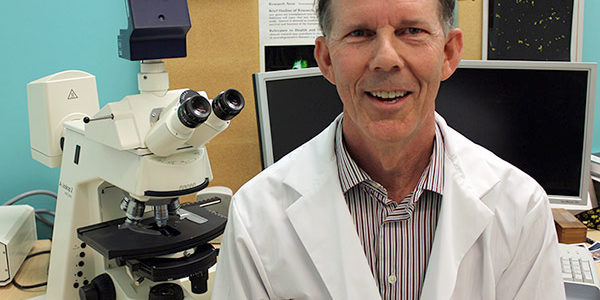
With a $90,000 grant from the FRAXA Research Foundation from 2015-2016, Dr. Laurie Doering and Dr. Angela Scott at McMasters University studied astrocytes in Fragile X. Astrocytes, brain cells which support neurons, do not transmit signals. Several treatment strategies for Fragile X have been proposed based on correction of “astrocyte phenotypes”.
Read moreSensory Hypersensibility in Fragile X Syndrome and BK Channel Openers

With $366,100 in grants from FRAXA Research Foundation, these investigators at the University of Orleans studied sensory abnormalities in Fragile X mice and test the ability of a class of drugs, BK channel openers, to rescue these abnormalities.
Read moreMicroRNAs as Biomarkers in Fragile X Syndrome

With a $90,000 grant from FRAXA Research Foundation in 2015-2016, Dr. Mollie Meffert and Dr. Christina Timmerman at Johns Hopkins University studied groups of small RNAs, known as microRNAs, which are greatly decreased in brain tissue of Fragile X mice vs. normal controls.
Read moreRepurposing Drugs to Dampen Hyperactive Nonsense-Mediated Decay in Fragile X Syndrome

With a $90,000 grant from the FRAXA Research Foundation, Dr. Lynne Maquat and Dr. Tatsuaki Kurosaki will investigate nonsense-mediated mRNA decay (NMD) in Fragile X. NMD is a “housekeeping” process that cells use to prevent faulty proteins from being made. But there is too much of it in Fragile X syndrome. There are already available drugs that suppress NMD – including caffeine.
Read moreAltered Sleep in Fragile X Syndrome: Basis for a Potential Therapeutic Target
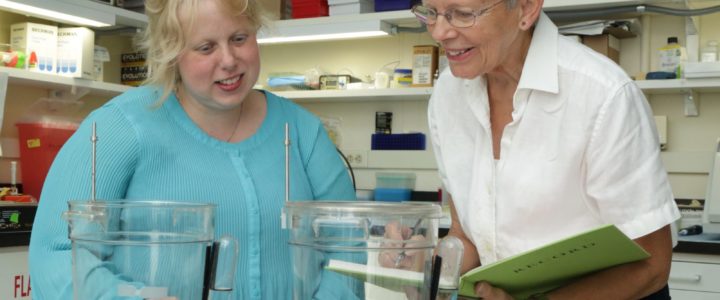
With a $90,000 grant from FRAXA Research Foundation over 2016-2018, Dr. Carolyn B. Smith and Dr. Rache Sare at the National Institute of Mental Health investigated the basis of sleep problems in Fragile X syndrome.
Read moreEnhancement of NMDA Receptor Signaling for the Treatment of Fragile X Syndrome
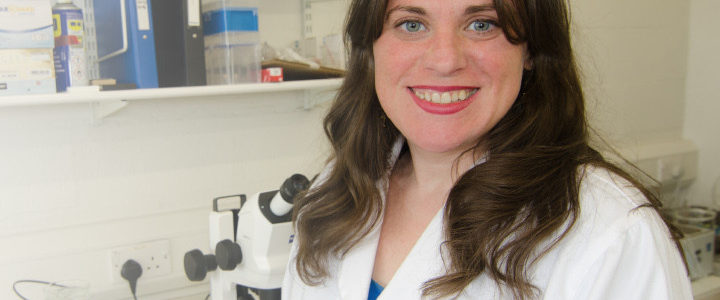
FRAXA Research Foundation funded a 2016-2017 Fellowship for Dr. Stephanie Barnes in the University of Edinburgh lab of Dr. Emily Osterweil. With this $90,000 award, the team is investigating NMDA signaling in fragile X syndrome mice.
Read moreTargeting AMP-Activated Protein Kinase Pathway in Fragile X Syndrome

With a $100,000 grant from the FRAXA Research Foundation in 2015, Dr. Peter Vanderklish explored a novel strategy to treat Fragile X syndrome: AMPK activators. The good news is that there are FDA approved (for example, metformin) and naturally occurring AMPK activators (such as resveratrol, found in red wine).
Read moreFruit Flies to Model and Test Fragile X Treatments

Dr. Jongens and his collaborators have found an insulin-like protein in the fly brain that is overexpressed in the Fragile X mutant fly, leading to increased activity of the insulin signaling pathway. Furthermore, they found that certain behavioral patterns in the Fragile X flies can be rescued by expressing the FX gene just in insulin producing neurons in the fly brain. In the mutant, there are other changes in the signaling pathways, including a decrease in cAMP and elevation in PI3K, mTOR, Akt and ERK activity. They now propose to study 2 medicines used for diabetes: pioglitazone (increases cAMP and decreases Akt and ERK) and metformin (inhibits mTOR), in flies and mice to validate the potential efficacy of these novel therapeutics for Fragile X.
Read moreFRAXA Grant to Nahum Sonenberg, PhD — Effects of metformin in Fmr1 knockout mouse model of Fragile X syndrome

Mis-regulation of activity-dependent protein synthesis is one of the major cellular abnormalities found in Fragile X. Upstream neuronal signaling regulates a large cluster of enzymes called the mTORC1 complex, which in turn regulates protein synthesis. This complex is also controlled by cellular energy levels via the metabolic sensor AMP-activated Protein Kinase (AMPK). AMPK is a highly conserved kinase that is activated under conditions of energy stress, when intracellular ATP levels decline and intracellular AMP increases.
Read moreThe Endocannabinoid System in a Mouse Model of Fragile X Syndrome

With a $128,500 grant over 2011-2013 from FRAXA Research Foundation, Drs. Bradley Alger and Ai-Hui Tang at the University of Maryland researched endocannabinoid pathways in Fragile X.
Read moreInhibitors of STEP as a Novel Treatment of Fragile X Syndrome

With a $349,000 grant from FRAXA Research Foundation from 2008-2015, Dr. Paul Lombroso and his team at Yale University researched if inhibiting STEP could reduce behavioral abnormalities in Fragile X syndrome. Results published.
Read moreMolecular Mechanisms of Cytoskeletal Regulation by FMRP
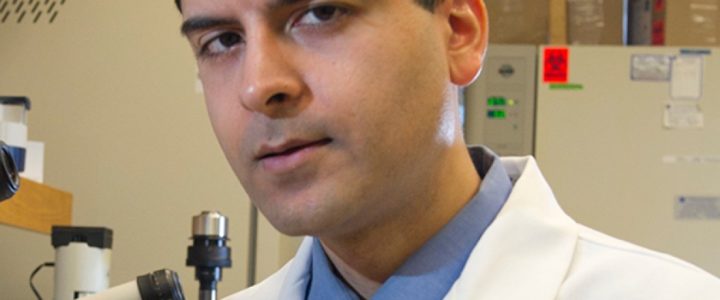
With a 2-year, $120,000 grant from FRAXA Research Foundation in 2015, Dr. Samie Jaffrey from Weill Medical College of Cornell University will research the connection between FMR1, RhoA, and dendritic spine abnormalities.
Read moreTargeting the Endocannabinoid System in Adult Fragile X Mice
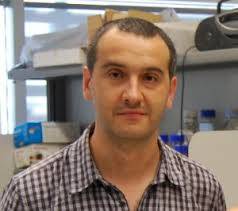
With a $90,000 grant from the FRAXA Research Foundation from 2013-2014, Dr. Andres Ozaita led a team to test rimonabant’s ability to blockade the CB1 receptor. Blocking CB1 has shown potential to reverse most symptoms of disease in mice bred to mimic Fragile X syndrome.
Read moreFunctional Interplay Between FMRP and CDK5 Signaling
With a $180,000 grant from the FRAXA Research Foundation over 2011-2014, Dr. Yue Feng and Dr. Wenqi Li at Emory University will study CDK5 pathway function and regulation in an effort to break down whether and how CDK5 signaling is affected by the loss of the Fragile X protein, FMRP, in the Fragile X mouse model.
Read moreSynaptic Characterization of Human Fragile X Neurons

With a $90,000 grant from FRAXA Research Foundation over 2013-14, Dr. Marius Wernig and Dr. Samuele Marro at Stanford analyzed homeostatic plasticity and regulation of synaptic strength by retinoic acid. If the results are encouraging, they will move forward with testing whether available RA antagonists can alleviate observed abnormalities in these cells.
Read moreBcl-xL Inhibition as a Therapeutic Strategy for Fragile X Syndrome

Scientists have found increases in the numbers of neurons in brain regions of autistic children, suggesting a problem in developmental programmed cell death pathways. One of the most important effectors of neuronal survival during brain development is the “anti-cell death” protein Bcl-xL. While the normal function of Bcl-xL is to maintain a healthy number of neurons and synapses, over-expressed Bcl-xL can cause an overabundance of synaptic connections. This may be happening in Fragile X.
Read moreSeizures in Fragile X Syndrome and Therapeutic Potential of NMDA Receptor Antagonists

With a $90,000 grant from the FRAXA Research Foundation, Dr. Robert Wong is investigating how seizures are generated in Fragile X neurons. More generally, he is looking at how synapses are modified to enable learning and memory and how this process is impaired in Fragile X.
Read more
